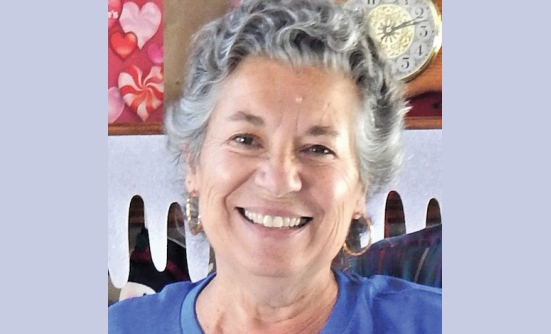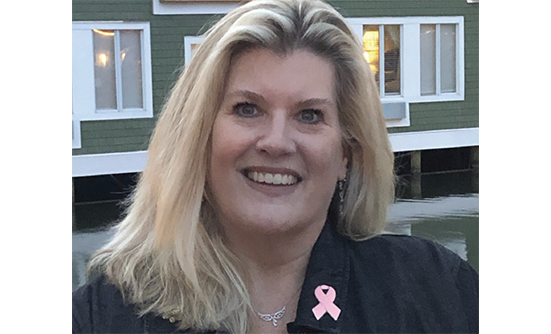Cancer treatment is largely shifting from inpatient infusion therapy to outpatient treatment with oral therapies, but the impact of these new therapies on lost productivity and time away from work is still unknown. In addition, an emphasis on early detection has led to younger individuals being diagnosed and treated for cancer. Survivors are living longer, but this shift in the age at diagnosis has resulted in longer and often more aggressive treatments, and in turn, has increased the number of survivors returning to the workforce.
Cancer therapies are costly, which creates an even greater incentive for patients to maintain an income and health insurance coverage, but patients still face a multitude of barriers in returning to work after a cancer diagnosis and treatment.
According to Cathy J. Bradley, PhD, Associate Director of the Cancer Prevention and Control Program at the University of Colorado Cancer Center in Aurora, all these factors underscore the need for effective interventions—for patients, providers, and workplace personnel—to minimize the effects of cancer and its treatment on people returning to work.
Shifting Trends in the Workforce
In addition to any cost consideration, there is a strong intrinsic desire for patients with cancer to remain in the workplace. It provides a sense of normalcy and self-worth, as well as a distraction from treatment.
“For many of us, it defines who we are,” Dr. Bradley said at the 2018 Cancer Survivorship Symposium. “It’s also an important signal about recovery. Saying ‘he’s back to work’ means something to us; it’s different from saying ‘he’s doing better.’”
The US workforce is now trending toward more freelance and contract work, which means that more workers are not getting benefits, such as health insurance and paid sick leave. People are also remaining in their jobs longer, which increases the probability of becoming a working cancer survivor. Disparities are becoming more common in the workplace, with low-skilled workers tending to work fewer hours, cutting costs by removing their healthcare insurance, or withdrawing from the labor force altogether.
African-Americans, Hispanics, and rural workers with cancer are more adversely affected than others, which raises concerns about the widening disparities in cancer survivorship. Workers in more cognitively demanding jobs tend to have a more difficult time returning to work because of the effects of treatment, and they therefore face the risk of depression and worst outcomes.
“Cancer survivorship doesn’t take place in a vacuum. We have to think about what trends are going on around us,” Dr. Bradley emphasized. “This changing workforce dynamic is going to have critical implications for cancer survivors in needing healthcare coverage and flexibility following diagnosis and treatment.”
The Patient’s Perspective
According to Dr. Bradley, patients with cancer who are returning to the workforce need symptom control, rehabilitation if treatment has created a deficit, and re-training if getting back to the same role is no longer a possibility.
Cancer care providers should understand the potential impact of a certain treatment on the patient’s job and incorporate that knowledge into their treatment decisions. In fact, your (the patient’s) care team should make treatment decisions that will maximize your ability to work; for example, supportive therapies such as cognitive and physical therapies can be very effective. By contrast, sleep aids and antidepressants may interfere with your ability to function in the workplace.
You, too, should have reasonable expectations of how much time you will miss from work, how you can plan for that time away, and whether the treatment you select will affect your functional status and ability to perform your work requirements.
Training should be provided to managers, human resources departments, and employees on how to have policies for people dealing with a cancer diagnosis.
“When I talk to members of patient advisory boards who are going back to work, they repeatedly report that well-meaning employers do the wrong thing,” Dr. Bradley said. “So this is a big area of education—to be able to inform both survivors and their employers about what’s needed and what can be done—that’s not just well intentioned, but also effective.”
Workplace Accommodations
Employers should offer workplace accommodations—such as flexible schedule, telework, or fewer hours without jeopardizing benefits—to cancer survivors, and help to ensure that they don’t face discrimination for having been diagnosed with and treated for cancer. If your employer does not offer such accommodation, you may wish to discuss this with your human resources manager.
“If survivors want to get back into the workforce, the workforce needs to meet them somewhere in the middle with accommodations that help them stay attached to their job, especially during long treatment regimens,” Dr. Bradley said.
According to Dr. Bradley, the ability to work after a cancer diagnosis and treatment is currently not integrated into clinical practice, nor is it handled well at the worksite. This results in a survivorship environment that has not caught up with the other advances being made in cancer treatment.
“But returning to work is a tangible signal, and an important one in a patient’s recovery and survivorship,” she emphasized.
Key Points
- Cancer care providers should be mindful of the impact a certain treatment may have on your job
- Patients should have reasonable expectations about how much time they may miss from work
- Sleep aids and antidepressants may interfere with your ability to work
- Returning to work is an important marker in your recovery and survivorship















